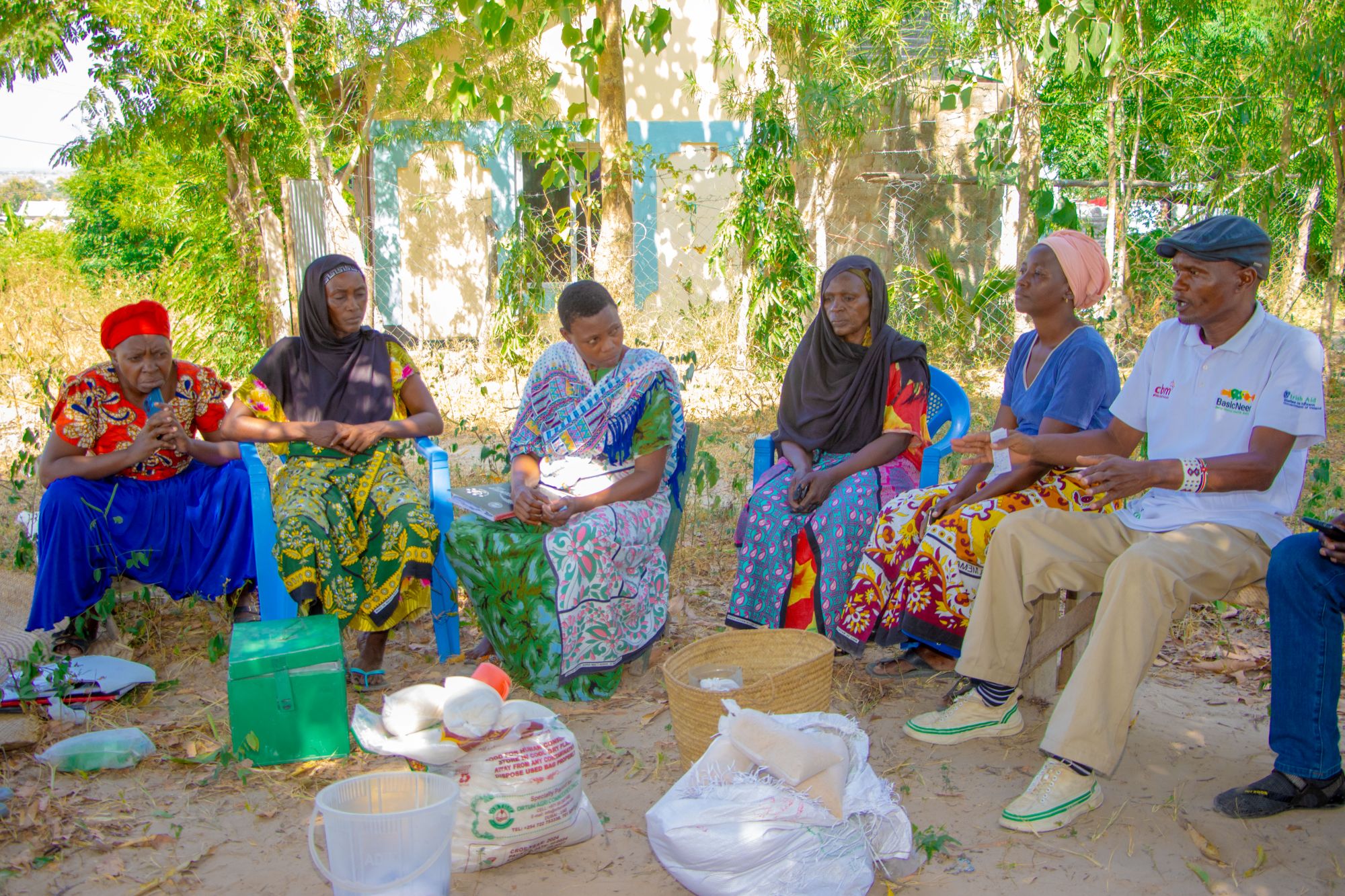By Yusto Mwakesi
Basic Needs Basic Rights (BNBR) Kenya together with CBM Global Disability Inclusion with funding from Irish Aid, have been working to strengthen the skills and capacity of persons with disabilities and their organizations. By creating support groups and providing training on business skills, mental health, human rights, and community development, the organizations are helping people with disabilities to build sustainable livelihoods and become active participants in their communities. This story highlights Chimera, a mental health champion and person with a disability, who has used his lived experience to inspire, guide, and empower others to overcome stigma, embrace opportunities, and support one another.

From struggles to strength
Chimera acknowledges that for some time, he experienced mental health challenges, but now he is confident that he is doing well. He explains that his recovery came mostly from being involved in the community and connecting with other persons with disabilities.
He got his disability when he was only three years old. It therefore took a while before he was able to walk unassisted. Today however, he is able to walk by himself and take care of his daily needs. He says that in 2021, he came across BNBR, an organization that gave him training on different topics — like community development, mental health, disability inclusion, human rights, quality rights, and how to form community groups.
After the training, Chimera was among community mobilizers given the task of going into villages to bring together persons with disabilities and their caregivers to be onboarded as project participants. He says that these groups, which were essentially started by BNBR and CBM Global, have become important. Through them, people with disabilities and caregivers have benefited from various training, assistive devices, help with disability certification, and even medical treatment.
Community Support and Lasting Change
Chimera explains that being in these groups helps persons with disabilities connect to the organization’s programs. In addition, the groups have also been taught how to start small businesses and run group projects. As a facilitator, Chimera says his role is to make sure everything goes well. The groups have now reached a point where they are learning how to create business documents like quotations, invoices, and delivery notes, so they can handle work when they get opportunities.

He is proud of the opportunities he has been exposed to such as taking part in workplace disability audits. Here, he got an opportunity to accompany the National Council of Persons with Disabilities to engage with various employers in Kilifi County and audit workplaces to ascertain their level of accessibility to persons with disabilities. Chimera shares that the people and communities he has worked with have welcomed these efforts. Many caregivers and persons with disabilities feel happy when they meet him because he also has a disability. This gives them hope and encourages them.
Chimera remembers how, in the beginning, many persons with disabilities had lost hope and isolated themselves because of the challenges they faced. Others were afraid because of the stigma around disability and mental health. But now, things have changed. People have accepted these issues, and the community is coming together to support each other.
He also shares that the community has accepted these groups because of the mental health education they received. He says that if you walk around today, you will see that people understand more about mental health, and they believe that when given a chance, persons with disabilities can do many things for themselves.
Impact of the project
Chimera is appreciative to BNBR and CBM Global for their support, especially for setting up a mental health clinic in Gotani. He also mentions that they have made it easier for persons with disabilities to get important documents, like medical assessments for disability certification, at Mariakani Sub County Hospital. He says this has helped a lot because before, people had to pay, and many could not afford it. But now, the services are free, which makes it easier for people to get their certificates.
Chimera finishes by saying that the community is very happy with these changes, and they hope the program can reach even more people in the future.

